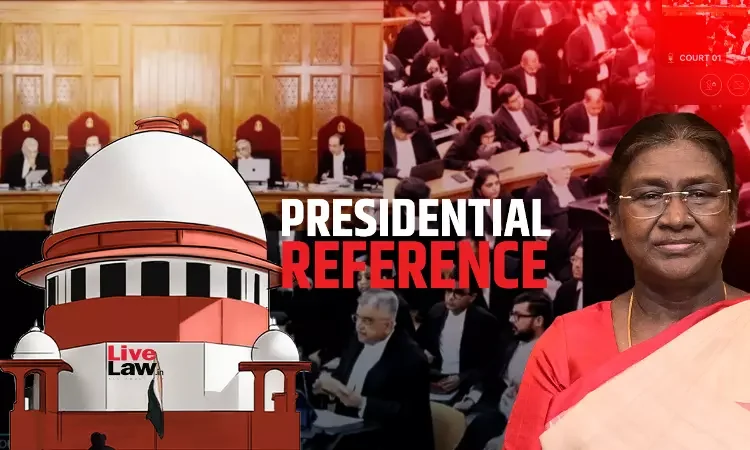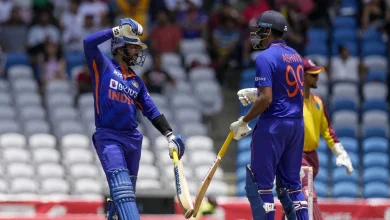Timelines Can’t Be Fixed For Governors/President For Bills’ Assent; No Concept Of ‘Deemed Assent’ :…

A bench comprising Chief Justice of India BR Gavai, Justice Surya Kant, Justice Vikram Nath, Justice PS Narasimha and Justice AS Chandurkar heard the matter for ten days and reserved its opinion on September 11.
The Presidential reference was made in May, soon after the judgment delivered by a two-judge bench in the Tamil Nadu Governor case, which laid down timelines for the President and the Governor to act on Bills.
The reference raised 14 queries. They were answered by the Court as follows :
1. What are the constitutional options before a Governor when a Bill is presented to him under Article 200 of the Constitution of India?
Answer -Upon presentation of the bill, the Governor can assent to the bill, withhold assent or reserve for the President’s assent. Withholding of the assent must be accompanied by the returning of the Bill to the Assembly as per the first proviso to Article 200. First proviso(which says Bill be returned to the Assembly) is not a fourth option, but qualifies the option of withholding assent. Thus, if assent to the Bill is withheld, then it must necessarily be returned to the Assembly. To permit the Governor to withhold the Bill without returning it to the house will derogate the principle of federalism. The Court rejected the Union’s argument that the Governor can simply withhold the Bill without returning to the House.
2. Is the Governor bound by the aid & advice tendered by the Council of Ministers while exercising all the options available with him when a Bill is presented before him under Article 200 of the Constitution of India?
Answer – Ordinarily, the Governor exercises functions under the aid and advice of the Council of Ministers. But in Article 200, the Governor exercises discretion. The Governor enjoys discretion under Article 200, as indicated by the use of the words “in his opinion” in the second proviso of Article 200.
The Governor has discretion either to return the bill or to reserve the Bill for the President.
3. Is the exercise of constitutional discretion by the Governor under Article 200 of the Constitution of India justiciable?
Answer – The discharge of Governor’s functions under Article 200 is not justiciable. The Court cannot enter into a mert-review of the decision so taken. However, in a glaring circumstance of inaction, that is prolonged, unexplained and indefinite, the Court can issue a limited mandamus for the Governor to discharge his functions under Article 200 within a reasonable time period without making any observation on the merits of the excercise of the discretion.
4. Is Article 361 of the Constitution of India an absolute bar to the judicial review in relation to the actions of a Governor under Article 200 of the Constitution of India?
Answer : Article 361 is an absolute bar on judicial review. However, it cannot be used to negate the limited scope of judicial review that this Court is empowered to exercise in cases of prolonged inaction by the Governor under Article 200. While the Governor enjoys personal immunity, the office of the Governor is subject to this Court’s jurisdiction.
5. In the absence of a constitutionally prescribed time limit, and the manner of exercise of powers by the Governor, can timelines be imposed and the manner of exercise be prescribed through judicial orders for the exercise of all powers under Article 200 of the Constitution of India by the Governor?
6. Is the exercise of constitutional discretion by the President under Article 201 of the Constitution of India justiciable?
7. In the absence of a constitutionally prescribed timeline and the manner of exercise of powers by the President, can timelines be imposed and the manner of exercise be prescribed through judicial orders for the exercise of discretion by the President under Article 201 of the Constitution of India?
Answers – Questions 5, 6 and 7 answered together –
The text of Articles 200 and 201, has been framed in such a manner, so as to provide a sense of elasticity, for constitutional authorities to perform their functions, keeping in mind the diverse contexts and situations, and by consequence the need for balancing that might arise in the process of law-making in a federal, and democratic country like ours. The imposition of timelines would be strictly contrary to this elasticity that the Constitution so carefully preserves.
In the absence of a Constitutionally prescribed timelimit, it would not be appropriate for this Court to judicially prescribe a timeline for the exercise of powers under Article 200. For similar reasoning as held for the Governor, the President’s assent under Article 201 is not justiciable. For the same reason, the President too cannot be bound by judicially prescribed timelines for the exercise of powers under Article 201.
8. In light of the constitutional scheme governing the powers of the President, is the President required to seek advice of the Supreme Court by way of a reference under Article 143 of the Constitution of India and take the opinion of the Supreme Court when the Governor reserves a Bill for the President’s assent or otherwise?
Answer : President is not required to seek the advice of the Court every time a Bill is reserved by the Governor. The subjective satisfaction of the President is sufficient. If there is a lack of clarity or need for advice, the President may refer.
9. Are the decisions of the Governor and the President under Article 200 and Article 201 of the Constitution of India, respectively, justiciable at a stage anterior into the law coming into force? Is it permissible for the Courts to undertake judicial adjudication over the contents of a Bill, in any manner, before it becomes law?
Answer . No. The decisions of the Governor and the President under Article 200 and Article 201 of the Constitution of India, respectively, are not justiciable at a stage anterior into the law coming into force. Bills can be challenged only if they become the law.
10. Can the exercise of constitutional powers and the orders of/by the President / Governor be substituted in any manner under Article 142 of the Constitution of India?
Answer . No. The exercise of constitutional powers and the orders of/by the President / Governor cannot be substituted by this Court in any manner under Article 142 of the Constitution of India. We clarify that the Constitution, specifically Article 142, does not allow the concept of “deemed assent” of Bills.
11. Is a law made by the State legislature a law in force without the assent of the Governor granted under Article 200 of the Constitution of India?
Answer- Answered in terms of Question 10’s answer. There is no question of a law made by the State Legislature coming into force without the assent of the Governor under Article 200. Governor’s legislative role under Article 200 cannot be supplanted by another Constitutional authority.
12. In view of the proviso to Article 145(3) of the Constitution of India, is it not mandatory for any bench of this Hon’ble Court to first decide as to whether the question involved in the proceedings before it is of such a nature which involves substantial questions of law as to the interpretation of constitution and to refer it to a bench of minimum five Judges?
Answer – Returned unanswered as the question is not relevant to the functional nature of this reference.
13. Do the powers of the Supreme Court under Article 142 of the Constitution of India limited to matters of procedural law or Article 142 of the Constitution of India extends to issuing directions /passing orders which are contrary to or inconsistent with existing substantive or procedural provisions of the Constitution or law in force?
Answer – Answered as part of Question 10.
14. Does the Constitution bar any other jurisdiction of the Supreme Court to resolve disputes between the Union Government and the State Governments except by way of a suit under Article 131 of the Constitution of India?
Not answered as it is found irrelevant.
Background




